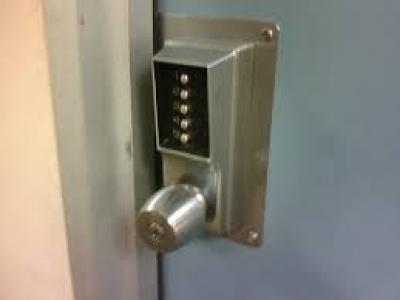Lock Maintenance and Rust Removal

How to Care for Your Locks
Locks are a fundamental part of security just about everywhere; where we live, work, vacation, or travel. Our homes, gates, cars, backyards, businesses, and sheds are just some of the places locks can be found. And no matter what you are securing and where you want and need a lock that will safeguard your belongings and keep intruders out. The LocksmithPros provide quality and immediate services whether you need lock installation or lock repairs. But what about when you need to have your lock’s functionality checked or make sure rust doesn’t destroy it? The LocksmithPros are still your guys!
How to Maintain Your Lock’s Integrity
All mechanical equipment needs proper maintenance to prevent damage and provide general upkeep. Though locks can last for years, often past the warranty dates provided at the initial purchase, there are still things you must do in order to keep your locks in good working order.
Here are eight key ways to make sure your locks are properly cared for:
-
Make sure your door is installed properly.
If your door is not mounted correctly or sags, your lock’s bolt and the latch will not connect properly and will damage the entire mechanism. Additionally, if your door doesn’t fully connect and you slam your door to make it fit, not only will your lock sustain excess wear and tear, but you will also damage your door.
-
Ensure that the screws and plates you use to fasten your door are secure.
The screws on your door frame must be long enough to connect tightly to the wall to which they are affixed. The strike plate, the metal plate that attaches to the door and is the piece the bolt enters, keeps the door closed and therefore needs to be attached correctly. An eighth or quarter of an inch off-kilter may seem negligible to the eye, but your door and locks will know.
-
Keep your doors and locks clean
You do not have to scrub the metal off your locks, but keeping them dry in humid seasons and monitoring condensation- related damage, is a must. It is imperative that you use a cleaner that is non-abrasive, corrodes metal, or contains petroleum jelly, as these chemicals will wreak havoc on your locks!
-
Regularly oil your door’s mechanisms
Handles, crash bars (metal bars placed in the middle of a door, allowing it to be opened by leaning your weight against it), locks, plates, and screws need to be oiled so they perform at peak level. It is recommended you do this about once every three months.
-
Make sure your door fits the frame it is encased in.
If the door is too small for the frame, the locks' security will be compromised. You do not want the inner bolt to be exposed to would-be intruders, or the doorjamb to impede your ability to smoothly open and shut the door.
-
Check the strike of the door frame.
The strike is the opening into which the bolt fits. If it is dirty or littered with debris, your lock will not fit and, in turn, work, properly.
-
Make copies of keys from the master, or original, key only.
Making a copy of a copy can be hazardous to the nooks and crannies your key is supposed to fit into.
-
Check the floor area surrounding your door.
If there are skid marks or rub marks caused by a door that drags along the ground, that is sure-fire proof of poor door alignment and by extension, misaligned locks.
Rust Removal and Prevention
In addition to the issues already highlighted, it is vital that you make sure your luck does not rust. There are ways to treat rust if it does appear, but prevention is definitely the best way to go.
How do you prevent rust from forming in your locks?
Much like the ways in which you ensure your lock is in working order, you must do the following items to prevent them from rusting:
Inspect your locks and use them at least weekly.
Inspecting your locks will help you determine if rust has or is on its way to forming. If any debris has already collected within the keyhole, the key can loosen up whatever is in there by simply inserting and turning it.
Lubricate your locks.
Silicone sprays designed specifically for lock maintenance and care create a seal that protects licks from the elements and rust formation.
Keep your locks clean.
This is probably the first and easiest way to prevent any and all lock problems, but must be done with chemicals appropriate for doors and lock plates.
Treatment of Rusty Locks
The reality is that rust is stubborn and hard to treat because once it forms, chemical reactions occur that weaken the metal it has formed on. This is particularly true of metal locks of all types that have been exposed to moisture for long periods of time. By definition, the presence of rust indicates that the metals it has affected are corroded and damaged, and this is but one of the reasons rust prevention is so important.
Still, there are folks who have had success using two types of lubricants.
- Dry lubricants, such as those containing graphite, allow the inner lock’s mechanisms to slide against each other, thereby allowing a key to be successfully inserted and the lock opened.
- Wet lubricants, such as water displacement products like WD- 40 that can help de-rust locks.
Because prevention is your best defense, it is very likely that you will need to replace your rusty locks. Our 24-hour locksmith service is here for your lock needs and will be at your door when you call us.
Do your best to keep your locks clean and rust at bay, but remember who to call in any and all locksmith emergencies- The LocksmithPros!
